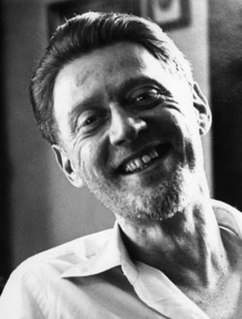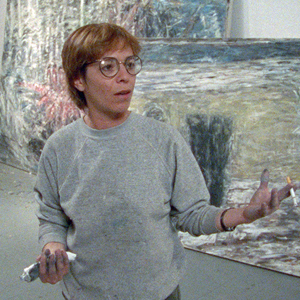A Quote by Ayn Rand
Rationalization is a process of not perceiving reality, but of attempting to make reality fit one’s emotions.
Related Quotes
Rationalization is a cover-up, a process of providing one's emotions with a false identity, of giving them spurious explanations and justifications - in order to hide one's motives, not just from others, but primarily from oneself. The price of rationalizing is the hampering, the distortion, and, ultimately, the destruction of one's cognitive faculty. Rationalization is a process not of perceiving reality, but of attempting to make reality fit one's emotions.
We know only what we do, what we make, what we construct; and all that we make, all that we construct, are realities. I call them images, not in Plato's sense (namely that they are only reflections of reality), but I hold that these images are the reality itself and that there is no reality beyond this reality except when in our creative process we change the images: then we have created new realities.
I think there has to be an interesting transformative process between your perception of reality and making the paintings. If you are just trying to render what you see you are not entering into a transformative process. And that's what makes a good painting: the process of transforming and the willingness to leave reality behind.
The object of a dialogical-liberterian action is not to 'dislodge' the oppressed from a mythological reality in order to 'bind' them to another reality. On the contrary, the object of dialogical action is to make it possible for the oppressed, by perceiving their adhesion, to opt to transform an unjust reality." "In order for the oppressed to unite they must first cut the umbilical cord of magic and myth which binds them to the world of oppression; the unity which links them to each other must be of a different nature.
In your system of reality you are learning what mental energy is, and how to use it. You do this by constantly transforming your thought and emotions into physical form. You are supposed to get a clear picture of your inner development by perceiving the exterior environment. What seems to be a perception, an objective concrete event independent from you, is instead the materialization of your own inner emotions, energy, and mental environment.
Until now, physical theories have been regarded as merely models with approximately describe the reality of nature. As the models improve, so the fit between theory and reality gets closer. Some physicists are now claiming that supergravity is the reality, that the model and the real world are in mathematically perfect accord.
Since consciousness is the basis of all reality, any shift in consciousness changes every aspect of our reality. Reality is created by consciousness differentiating into cognition, moods, emotions, perceptions, behavior, speech, social interactions, environment, interaction with the forces of nature, and biology. As consciousness evolves, these different aspects of consciousness also change.




































